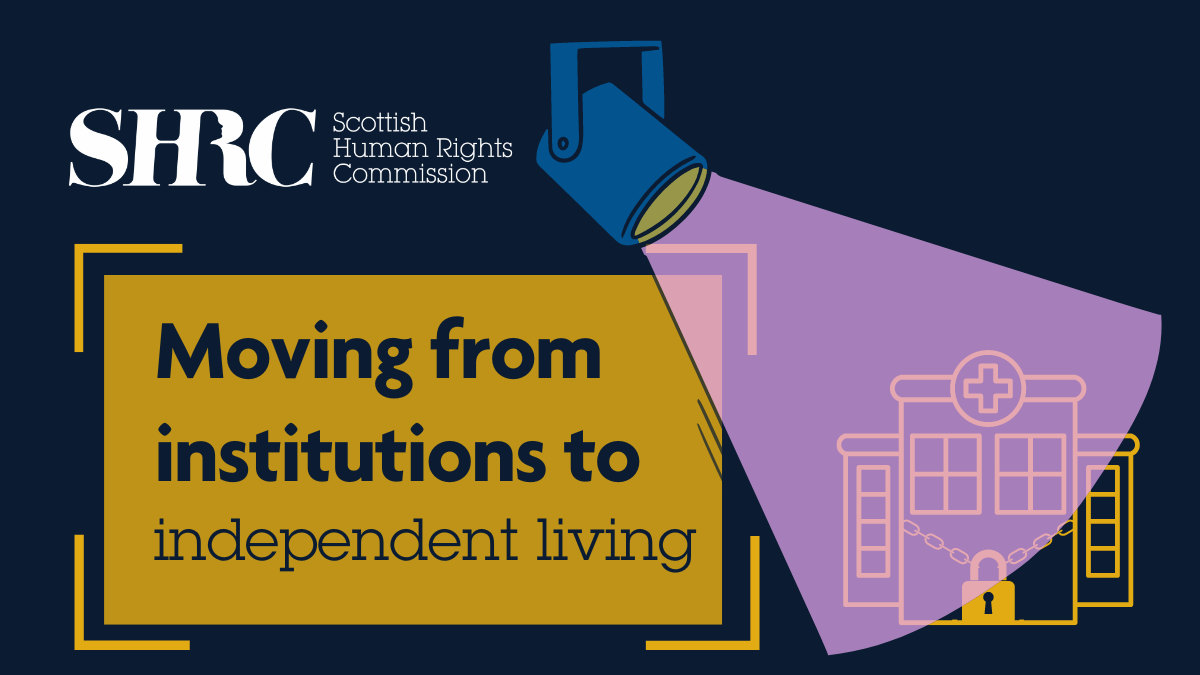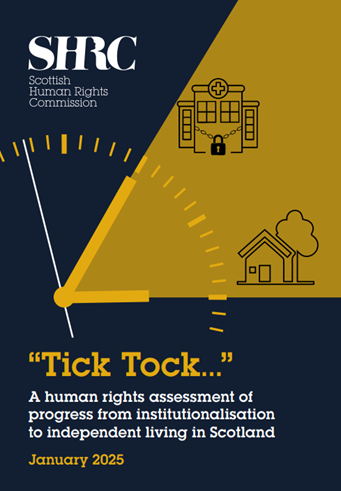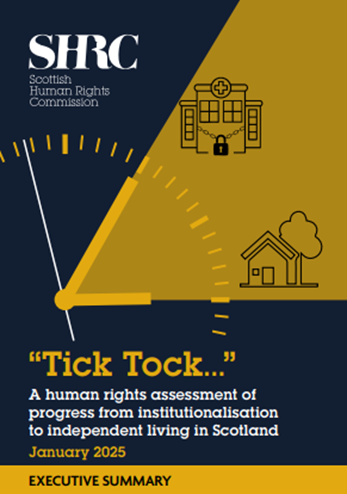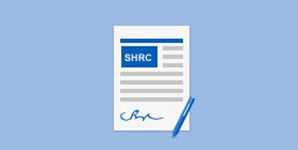What the issue is about
Every person has the right to live independently, where they choose and with the people they choose. Some disabled people need support to do this, and they have the right to access local support which gives them choice and control in their lives.
For some people with learning disabilities and/or autistic people in Scotland, choices that allow them to live in their community are not available. Instead, they may end up having to move far away from home to receive support or be admitted to hospital. It can take a long time for people to get out of hospital again.
When people are forced to live in places where they do not have choice and control over their lives, this is called institutionalisation.
Why we are spotlighting this issue
The Convention on the Rights of Persons with Disabilities (CRPD) protects disabled people's rights. CRPD says that institutionalisation should be replaced by personalised support in the community, chosen by the people who need it. The Scottish Government have ratified this Treaty, which means that they must take action to make this happen for disabled people in Scotland.
In the 1990s, the Scottish Government decided that all large institutions for people with learning disabilities/autism would be closed, and that people would be supported to live in their own communities. Thirty years later, we see that many people are back in hospital because their local support has broken down or is not available.
In 2022, the Scottish Government made a new plan to make a real change to the lives of people with learning disabilities and/or autistic people who are living in institutions that they should not be in. This plan is called Coming Home. The plan had a goal to do this by March 2024.
What we did
This project aims to check whether the Coming Home plan is making a difference to disabled people’s human rights. We used human rights measurement, which is a way of checking how well human rights are happening in real life. It takes the ideas of human rights and turns them into things we can count or look for. It shows what is being done and what is not being done.
We did this in two ways:
Participation Project
We worked with human rights defenders on a participation project called Measuring Change to co-create two tools for people with learning disabilities, autistic people and people who support them.
Short film
A short film of the human rights defenders we worked with, sharing their experiences of institutionalisation and what action they would like to see. Watch it here, or on our YouTube channel. BSL translation included.
Toolkit
An online booklet which explains in plain English how to measure progress in moving away from institutions using human rights indicators.
The toolkit is also available as an accessible Word document, and as an Easy Read. A BSL version of the toolkit is forthcoming.
Research
We also carried out research to find out if the Coming Home plan was making a difference to people's lives. The research used human rights indicators to measure progress made in the realisation of the right to independent living.
We wrote a report which looked at that research, as well as the lived experience of people impacted by the policy through a Project Reference Group.
Our report found big gaps in the Coming Home plan's progress and clear failures to uphold human rights have continued. For example, the Scottish Government failed to meet their own target to "greatly reduce" the number of people living in institutions by March 2024 and most of the people who should have come home are still institutionalised. Overall, we found that that these people are not having their right to live independently met.
Have 5 minutes?
Watch the film to learn more about the human rights defenders project and read the Executive Summary to find out more about the report.
The Executive Summary is available here as a PDF, Word, Easy Read. It is also available in BSL at the top of this page, our BSL webpage, and our YouTube Channel.
Have more time?
Read the defenders toolkit and our full report below. Both are available below as PDFs and accessible Word documents. Watch the BSL summary of the report at the top of this page, our BSL webpage, and our YouTube Channel. A BSL of the toolkit is forthcoming.

Publications and resources
What we will do next
We will produce factsheets to turn the findings of this report into guides for concrete action, and advice for individuals and families.
As Scotland's National Human Rights Institution, we aim to hold those responsible for upholding human rights to account. Our report makes nine recommendations for actions that the Scottish Government should take to address the gaps and ensure people with learning disabilities and/or autistic people who are living in institutions can access their right to live independently.
We have shared our report with the Scottish Government, Disabled People’s Organisations in Scotland and other relevant bodies. We will continue to monitor progress towards deinstitutionalisation in Scotland and urge the Scottish Government to act on our recommendations.
















